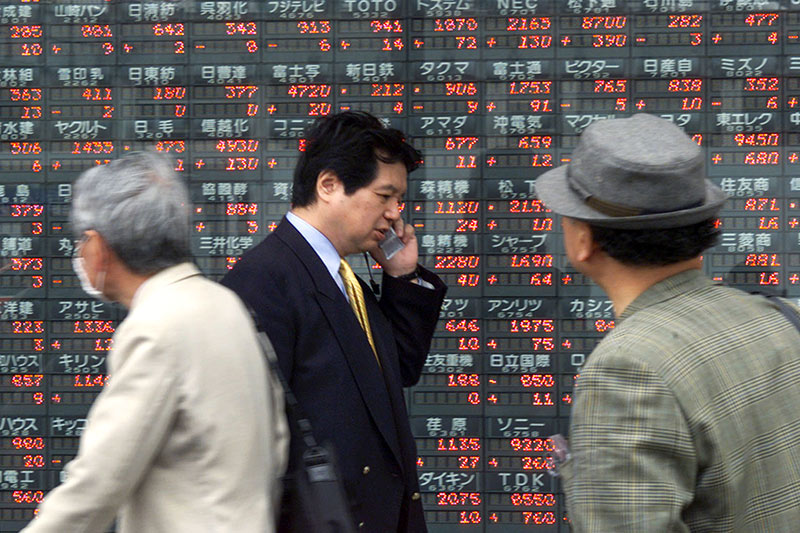Investing.com - Asian stocks advanced in afternoon trade on Monday after the U.S. markets rose on Friday following comments by the U.S. Federal Reserve Chairman Jerome Powell.
China’s yuan was in focus as the People’s Bank of China said banks would resume using the “counter-cyclical” factor when calculating the yuan’s daily reference rate to prevent the currency from falling further amid escalated trade tension with the U.S.
China had suspended use of the factor in January, when regulators became more comfortable with the yuan’s strength after several months of gains against the dollar.
The yuan has slid more than 6% against the greenback since mid-June.
Federal Reserve Chairman Jerome Powell’s speech at the Jackson Hole Symposium in Wyoming last Friday was cited as supportive as he said that "further, gradual" rate hikes were likely in the future, noting the economy is "strong" and able to withstand tighter monetary policy. His comments came after President Donald Trump said earlier this month that he was “not thrilled” with the Fed’s decision to hike rates.
In Asia, China’s Shanghai Composite and the Shenzhen Component gained 1.7% and 2.7% respectively by 1:50AM ET (05:50 GMT). Hong Kong’s Hang Seng Index also traded 2.2% higher. Sinopec (HK:0386) jumped as much as 5% after the company raised its dividend payout and reported a record high half-year earnings.
Data on Monday revealed that profits earned by China's industrial firms rose 16.2% in July from a year earlier, slowing from 20.0% in June.
In the first seven months of 2018, industrial profits rose 17.1% from the same period last year, compared with a 17.2% rise in the first half according to data from the Statistic Bureau.
Meanwhile, Japan’s Nikkei 225 edged up 1.0% as the country’s Prime Minister Shinzo Abe seeks to become longest-serving premier after announcing his candidacy for a ruling Liberal Democratic Party (LDP) leadership election.
Down under, Australia’s S&P/ASX 200 inched up 0.3% following a week of political tumult that saw the Scott Morrison become the country's sixth prime minister. South Korea’s KOSPI gained 0.4%.
